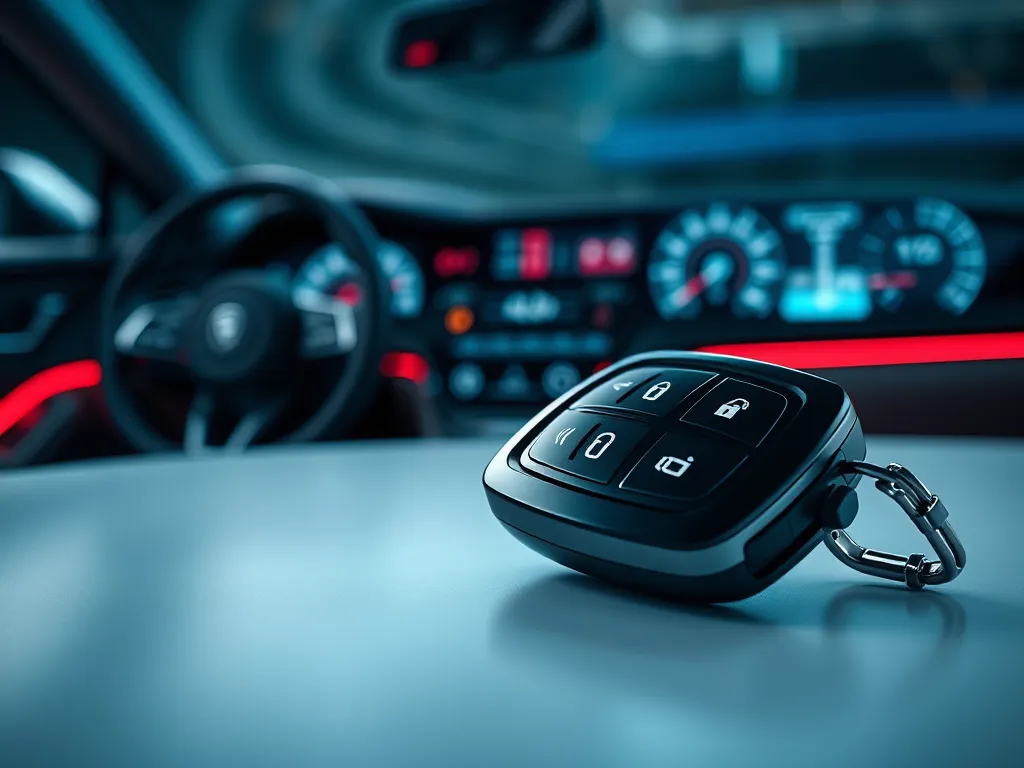Unlocking Convenience: Why Do You Need Remote Key Programming?

Understanding Remote Key Programming: A Complete Guide
Remote Key Programming is an essential technological advancement in automotive security and convenience. This process involves programming a remote key fob to communicate effectively with a vehicle's locking and starting mechanisms, allowing for easy access and enhanced security features.
A robust security system that includes a reliable theft deterrent is essential for protecting your property.
In recent years, Remote Key Programming has become increasingly important for vehicle owners due to rising concerns about vehicle theft and the need for enhanced user convenience. This method not only facilitates keyless entry into vehicles but also allows drivers to start their cars from a distance, making it more practical for daily use.
Upgrading your vehicle's security system with additional convenience features can enhance both comfort and safety.
The Remote Key Programming process varies by vehicle model and brand, which can lead to confusion for many car owners. However, understanding the basics can greatly aid in the troubleshooting and programming of remote keys, ensuring that users are well-equipped to handle their key needs.
Furthermore, Remote Key Programming is not a purely technical procedure reserved for automotive specialists; many are empowered to perform this task themselves with the right tools and knowledge. This flexibility can save time and money, making it an appealing option for many car owners.
In this article, we will explore the benefits, processes, different vehicle types utilizing remote key programming, security measures, and the debate between professional and DIY key programming options.
Benefits of Remote Key Programming
One of the most notable benefits of Remote Key Programming is the enhanced security features it incorporates. Modern key fobs often include rolling codes and encryption that make unauthorized access to the vehicle nearly impossible, significantly deterring theft.
Modern vehicles are increasingly equipped with remote start capabilities to provide added convenience and security for drivers.
Increased convenience is another major advantage of Remote Key Programming. With remote keys, users can unlock their vehicles from a distance, allowing for hands-free entry, especially beneficial when carrying groceries or luggage.
Cost-effectiveness is a key benefit as well. While there may be initial costs associated with remote key programming, the overall savings in time and potential locksmith fees for lockouts or lost physical keys can be substantial.
Overall, improving car safety mechanisms through Remote Key Programming ensures that cars are equipped with the latest in security technology, giving drivers peace of mind every time they approach their vehicle.
Process of Remote Key Programming
The process of programming a remote key generally follows a step-by-step guide. First, the vehicle’s ignition needs to be turned on and off in a specific sequence while the key fob is pressed. Specific sequences may vary between manufacturers; thus, consulting the owner's manual is recommended.
To successfully perform remote key programming, certain tools are required, including the remote key fob itself, the vehicle owner's manual, and sometimes specialized programming devices for more complex systems.
Common challenges during the programming process may include interference from other electronic devices, depleted key fob batteries, or failure to follow the exact instructions needed for a specific vehicle model.
If the remote key fails to work after programming, resetting the key may resolve the issue. This typically involves re-entering the programming sequence or replacing the battery of the fob and trying the process again.
Types of Vehicles Using Remote Key Programming
Various types of vehicles, from compact cars to luxury SUVs, utilize Remote Key Programming. Popular car brands such as Ford, Toyota, Honda, and BMW have widely adopted this technology in their models to enhance driver convenience.
Different vehicle models require different programming techniques. Some manufacturers provide a simple process that allows users to self-program their keys, while others may need a visit to a dealership or locksmith for specialized programming equipment.
Transponder keys, a common type of remote key, include a chip that communicates with the vehicle’s ignition system to grant access. This adds another layer of security, as the car will only start when it detects the programmed chip.
Older vehicles may not use remote key programming at all. Compatibility with such models may be limited, but there are aftermarket solutions and upgrades available for those looking to enhance their older car's security features.
Security Measures in Remote Key Programming
Remote Key Programming includes significant security measures to prevent theft. High-frequency radio signals and advanced encryption methods ensure that the signals sent between the key fob and the vehicle cannot be intercepted or duplicated easily.
Encryption methods used in remote key programming often feature rolling codes that change each time the remote is used. This makes it much harder for thieves to clone a key or gain access without the original.
Common vulnerabilities include potential exploits in the communication protocols. Solutions may involve updating vehicle software regularly and using two-factor authentication methods to enhance security further.
Regular key programming updates are crucial in maintaining robust security. Manufacturers may release updates to address known vulnerabilities, and staying informed helps prevent unauthorized access.
Professional Vs DIY Remote Key Programming
Hiring a professional programming service offers the benefit of expertise and experience. Professionals have access to the latest tools and software, ensuring that the job is done correctly without the risk of complications.
On the other hand, DIY key programming can pose risks, particularly for those without mechanical experience. Incorrect programming could lock the user out, void warranties, or lead to potential electrical issues in the vehicle.
When considering cost, professional services may initially seem more expensive, but the time saved and reduced risks of error can outweigh the costs. DIY options are often cheaper but carry higher risks, both for the vehicle and security.
Ultimately, choosing professional services over DIY methods should depend on the user's comfort level with technology, the complexity of their specific vehicle's key system, and the potential risks involved.